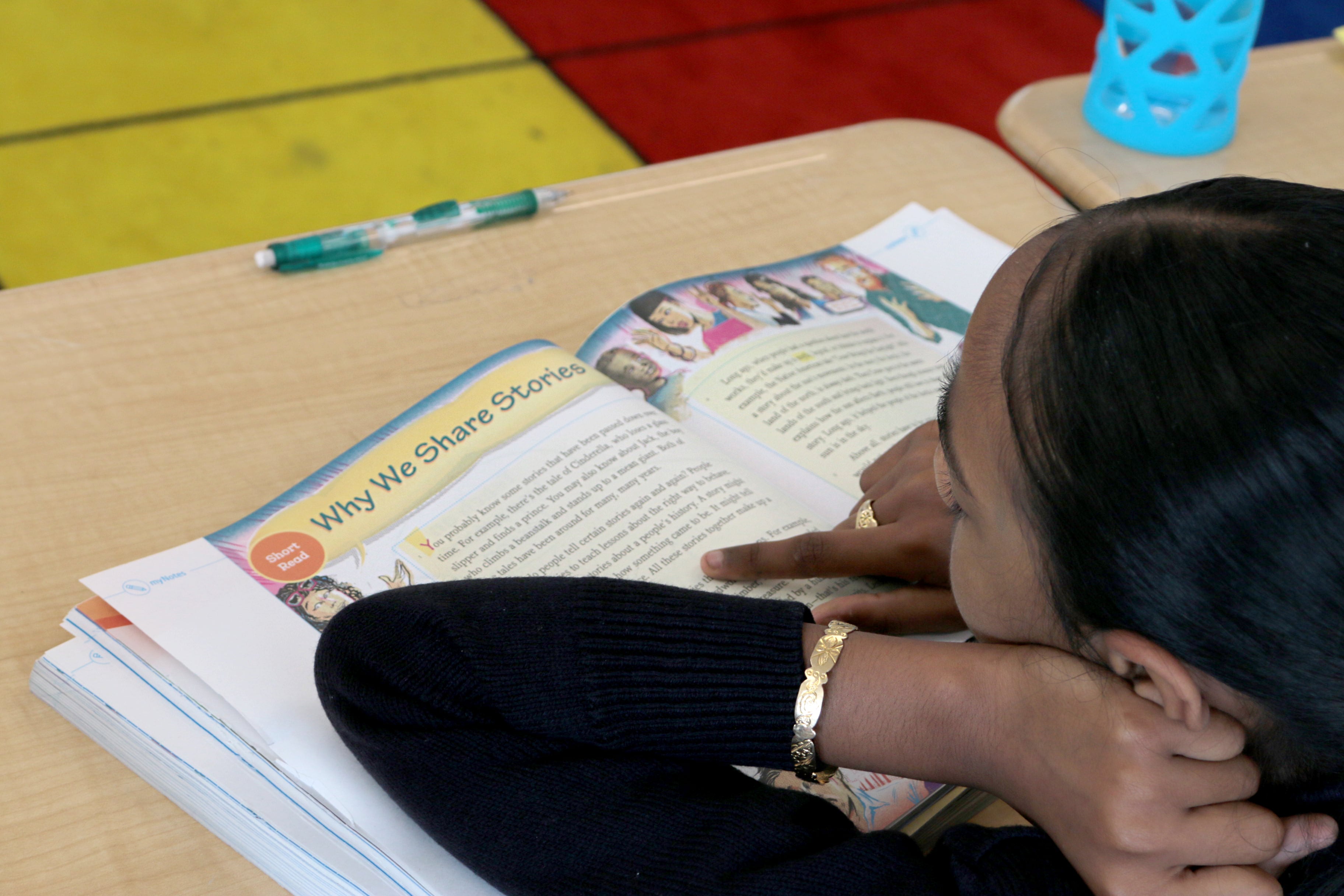Sign up for Chalkbeat New York’s free daily newsletter to get essential news about NYC’s public schools delivered to your inbox.
New York City education officials pulled a $1.9 million proposal to deploy an artificial intelligence-powered reading tutor a day after the city’s financial watchdog raised objections.
The move to withdraw the contract came just hours before the city’s Panel for Educational Policy was set to vote on it Wednesday evening.
City Comptroller Brad Lander had criticized the plan to tap Maryland-based EPS Learning to provide automated one-on-one tutoring for students struggling to read, screening for risk of dyslexia, and other assessments of students’ reading abilities.
Lander, who is running for mayor, argued that the Education Department needed clearer policies and student privacy safeguards before deploying AI tools in classrooms. According to the city’s proposal, the AI tool listens to students as they read aloud and “provides real-time, personalized feedback and micro-interventions in an interactive learning environment.”
On Wednesday morning, the day after Lander criticized the contract, Education Department officials defended the proposal, suggesting they planned to press ahead despite the comptroller’s objections. “We are disappointed at the Comptroller’s knee-jerk statement issued without doing even basic research on these programs,” Education Department spokesperson Jenna Lyle wrote in an email.
But two hours later, the agency announced it would withdraw the proposal and changed its tune. “We always welcome all feedback and will be delaying the vote in order to conduct additional public engagement,” Lyle wrote. “Importantly, this tool, which is used only by select students struggling with reading, has been used in schools for years.”
No schools would have been required to use the AI tool, and it would not have interfered with the city’s literacy curriculum overhaul or existing efforts to screen students for risk of dyslexia, Lyle noted. “We welcome the opportunity to discuss these nuances with the Comptroller,” she wrote.
The company previously indicated that 46,000 students across 162 New York City schools already use the tool.
Lander cheered the decision to withdraw the proposal.
“Because of the concerns from parents and advocates, DOE heeded our call to pull this item from today’s PEP meeting agenda,” Lander wrote in a statement. “Going forward, DOE should first evaluate the effectiveness of AI classroom aids, the data privacy protections of these tools, and develop a citywide policy for the appropriate use of AI in classrooms before inking a multi-million dollar contract.”
Lander’s office did not respond to a question about whether they believe schools that already use the AI tool should be allowed to continue using it.
Greg Faulkner, who chairs the Panel for Educational Policy, said he was glad the city is delaying the vote, as some panel members raised concerns about student privacy. The city had not clearly demonstrated that the program was effective in schools that already use it, he added.
“We should have as much confidence that this program is going to be safe and not pose any risk for kids,” Faulkner said.
EPS Learning declined to comment on the city’s decision to withdraw the proposal. Juanita Scarlett, a consultant with the company, previously told Chalkbeat that the AI tool “is a proven product that will empower teachers and improve literacy across the City. This AI is a closed, self-contained network.”
Top New York City education officials have said artificial intelligence is likely to reshape the nation’s largest school system and have signaled plans to embrace the technology. But they have yet to reveal many details — or policy guidance for educators about how to use it in their classrooms. In the meantime, some schools are experimenting on their own.
Alex Zimmerman is a reporter for Chalkbeat New York, covering NYC public schools. Contact Alex at azimmerman@chalkbeat.org.







